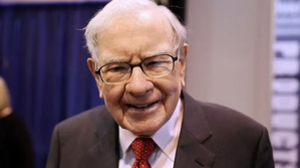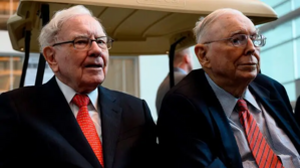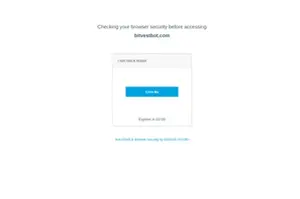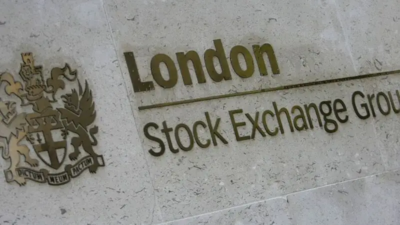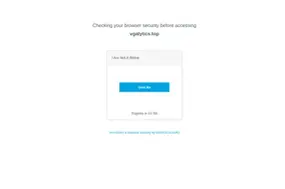Private equity finds its next bet: college admissions
A version of this story first appeared in CNN Business’ Before the Bell newsletter. Not a subscriber? You can sign up right here. You can listen to an audio version of the newsletter by clicking the same link.
It’s been a volatile few years for US college entrance exams, and the companies that run them, as universities around the country try to figure out what’s the best way to evaluate prospective students.
In the midst of that turmoil, the companies (often nonprofits) that create these tests have been slammed by financial losses.
Now, private equity firms are swooping in to help while taking majority stakes in exchange.
That’s worrying some education advocates.
What’s happening: ACT Inc., the Iowa-based nonprofit behind the eponymous college entrance exam, has been having a tough time. About 1.4 million students in the U.S. took the ACT in 2023, a small increase from the year before, but the numbers have not returned to pre-pandemic levels.
The company recorded a net loss of $12 million in fiscal year 2022, $6 million in 2021 and $60.5 million in 2020.
Last week, the company announced that it would partner with California-based private equity firm Nexus Capital Management and move its test into a for-profit company.
ACT Inc. says that this cash infusion will help expand and enhance services beyond testing. “At this moment in time, 40% of students leaving high school on average are going straight to the workforce,” ACT CEO Janet Godwin told CNN. “I think Nexus sees with ACT the absolute need that our nation has to make sure that we are developing talent for the needs of our employers.”
Goodwin, who will retain her position, declined to share the monetary details of the deal with Nexus but said it would bring “opportunities for inorganic growth” like mergers and acquisitions, strategic portfolio Investments and access to new talent.
It is “a very persistent misconception” that ACT is in “economic duress,” she said.
“We had impacts with Covid when schools were shut down and we weren’t able to operate at the scale that we typically do. But since 2021, we’ve been growing our revenues and we’ve rebounded very significantly.”
Nexus did not immediately respond to a request for comment.
The transparency problem: Still, some economists and education advocates worry that the move will decrease transparency in the testing process.
“A private equity buyout of the ACT sets off a lot of alarm bells for me,” Charlie Eaton, an associate professor of sociology and cofounder of the Higher Education, Race, and the Economy (HERE) Lab at the University of California, Merced, told CNN.
“There’s a reason why we typically have nonprofits deliver public goods like college admissions exams. People need to be able to trust that there’s a fair evaluation process so nothing gets distorted.”
Nonprofit companies are subject to regulatory oversight and disclosure requirements, which help ensure that transparency and maintain public confidence.
A company owned by private equity can obfuscate what the company actually does to the public and potentially to regulators.
The ACT will become a “public benefit corporation,” which means it is supposed to take the public good and shareholder interests into account. Still, that does not exempt it from taxes or from distributing its profits to its new owners.
Nexus Capital Management’s portfolio also includes Savvas Learning Company, which specializes in designing K-12 curriculums.
“If a private equity firm has input in the testing but they also own a company that develops the curriculum, they have control over the entire process,” said Azani Creeks, a senior research and campaign coordinator at the Private Equity Shareholder Project.
“They have a lot of control in ways that are not transparent. With something as important as college admissions testing you want that transparency. Nonprofits have to share a lot of information with the public, private equity-owned structures don’t,” she added.
ACT says it will not immediately raise test prices and that current, nonprofit ACT will retain a minority interest in the company and continue its research on education and the workplace.
Goodwin told CNN that she has heard and understands the concerns, but that ACT partnered with Nexus because of its “track record of working in education in a transparent way” and with the intention of creating long-term value instead of chasing profit.
Critics remain skeptical.
“We should be worried about industries where there are a lot of government subsidies available, where consumers often are not well informed, and where there’s a lot of market power for firms,” said Constantine Yannelis, an associate professor of finance at University of Chicago Booth School of Business. “I think the testing industry is unfortunately one of those industries where all three of those factors apply pretty strongly.”
A lot of colleges that are state-owned and receive government subsidies use the ACT to admit students and to administer aid, he said. “I worry that profitability could come at the expense of students, and particularly students coming from lower income families.”
A broad problem: It’s not just the ACT that’s going the way of private equity.
“This is a story about the fact that testing is going downhill in the US,” said Rebecca Winthrop, a senior fellow and director of the Center for Universal Education at the Brookings Institution. “All of these companies are actively shifting how they think about their products and the roles of testing. They’re losing money because people are questioning their merits.”
That means they need to expand.
Private equity Investment in education services amounted to $2.09 billion across 31 deals in the quarter to June 20, 2023, surpassing the $1.42 billion recorded in the second quarter of 2022, according to S&P Global Market Intelligence data.
Private equity firms “come into industries that are already suffering from a lack of funding,” said Creeks. “All of these issues with standardized testing predate private equity. They’ve had a lack of funding and support and so sometimes private equity is the only viable option. That’s why I really support government regulation and increased funding for funding.”
Between 2019 and 2022 the nonprofit College Board saw its revenue from the SAT exam plummet to $289.2 million from $403.6 million, as colleges ended or eased their testing requirements.
While the College Board is still a registered nonprofit, it administered the SAT exam through Cambium (owned by private equity firm Veritas Capital) through the summer of 2023.
“During the start of the Covid-19 pandemic, we saw the number of students taking the SAT decrease significantly,” a College Board representative told CNN. “Since then, we have seen strong interest in the SAT from students from all backgrounds.”
Powell warns that rate cuts will likely come later than expected
Federal Reserve Chair Jerome Powell made a rare public appearance away from the confines of the central bank press room on Tuesday when he joined Tiff Macklem, governor of the Bank of Canada, in a policy forum focused on US-Canada economic relations.
US stocks briefly wavered Tuesday after Powell said during the wide-ranging conversation that a “lack of further progress” on inflation means the central bank likely won’t cut interest rates at its upcoming policy meeting just two weeks away, keeping them higher for longer.
“The recent data have clearly not given us greater confidence” that inflation is headed toward the central bank’s 2% goal, Powell said during the moderated discussion hosted by the Wilson Center. Instead, he said, there are indications “that it is likely to take longer than expected to achieve that confidence.”
“Right now, given the strength of the labor market and progress on inflation so far, it’s appropriate to allow restrictive policy further time to work and let the data and the evolving outlook guide us,” the Fed chief said.
Interest rates are currently nestled at a 23-year high after the Fed launched an aggressive rate-hiking campaign two years ago, reports my colleague Bryan Mena.
Inflation is down considerably from a four-decade peak reached in the summer of 2022, but recent inflation reports have shown persistent price pressures in services and housing.
Higher borrowing costs, coupled with elevated prices for essentials, have forced many Americans to cut back. And while the US economy and the job market remain on strong footing, higher mortgage rates have all but stalled the housing market.
Boeing’s problems just cost United $200 million
United Airlines was pushed into the red by Boeing and its ongoing quality issues, the airline said Tuesday.
The company took a $200 million hit in the first quarter after the Boeing 737 Max 9 was grounded following the door plug incident aboard an Alaska Airlines flight, reports my colleague Chris Isidore.
United did not say whether or not it expects to be reimbursed by Boeing for the cost of the grounding of its 737 Max 9s for three weeks following the January 5 incident. But it did say that it would have been profitable without the cost of the grounding.
The blowout of a door plug on an Alaska Airlines flight caused a three-week grounding by the Federal Aviation Administration of the 737 Max 9 model of jets, and brought fresh questions about the safety and quality of Boeing planes. United, which depends on Boeing planes for about 80% of its mainline fleet, had 86 of the Max 9 jets, more than any other airline in the world, and it was hit particularly hard by Boeing’s problems.
Maybe You Like
London Stock Exchange urged to do more to hold onto retail traders
The UK stock market needs to improve investor communication and engagement in order to retain its individual traders, according to a report from online trade and investor provider CMC Markets. ADVERTISEMENTUK retail investors are increasingly...
Hargreaves Lansdown rejects private equity takeover bid
The UK investment platform says the offer from a group including the Abu Dhabi Investment Authority undervalues the firm. ADVERTISEMENTHargreaves Lansdown has rebuffed a takeover proposal worth £4.67 billion (€5.48 billion) made...
Ferrovial set to offload UK regional airports amid Heathrow deal uncertainty
Ferrovial is planning to sell its stake in three UK regional airports amid difficulties in finalising its £2.4bn sale of a 25% stake in Heathrow. ADVERTISEMENTSpanish infrastructure company Ferrovial is reportedly putting up for sale...





